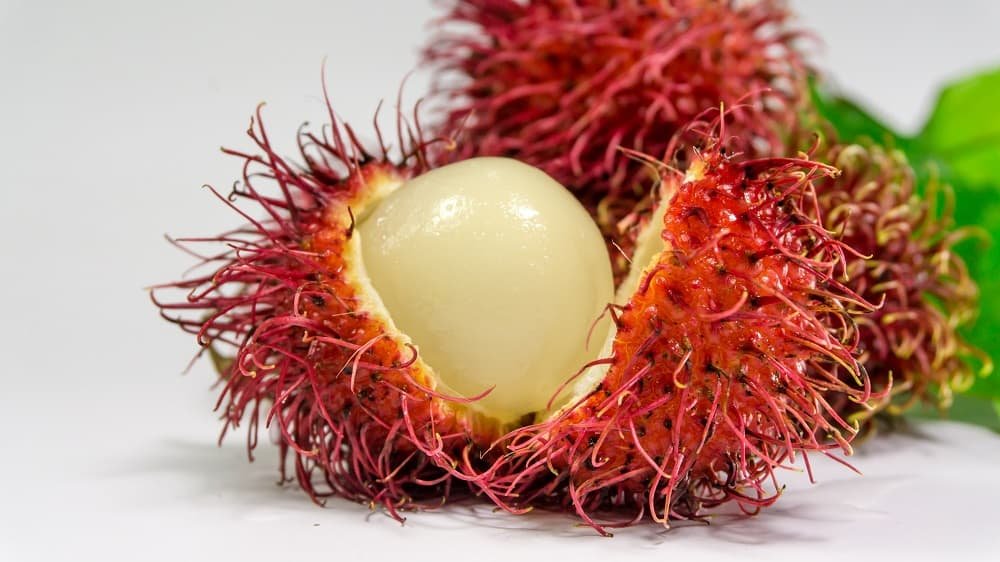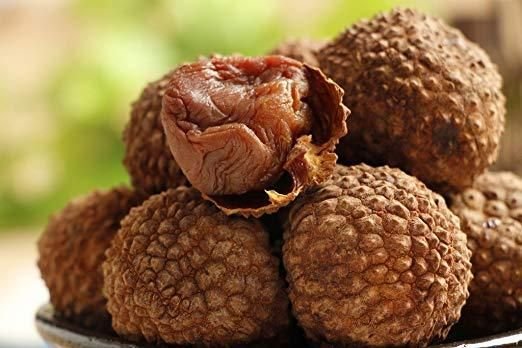Can Dogs Eat Lychee?

While dogs can eat many fruits as part of a healthy, balanced diet, some fruits are toxic to canines. So, can dogs eat lychee fruit? The answer is yes but with some precautions.
Lychee fruit is a tropical fruit that is packed with nutrients and fiber. It contains vitamins and minerals like vitamin C, calcium, phosphorus, and potassium.
However, before feeding lychee to your dog, you must remove the skin and seed. The skin and seed of lychee can be difficult to digest and may cause gastrointestinal issues in dogs.
It’s important to note that only ripe lychee fruit should be given to dogs. Unripe lychee is toxic and can cause a dangerous drop in blood glucose levels. Additionally, while lychee flesh is safe for dogs to consume in moderation, it’s important to limit their intake as lychees are also high in sugar.
In this article, we will delve into the world of lychee and explore whether it is safe and beneficial for our beloved canine companions.
Can Dogs Eat Lychee nut or Litchi fruit?
The good news is that dogs can safely eat lychee fruit in small amounts, but only the ripe flesh. Lychee or Litchi is a good source of vitamin C, which can help boost your dog’s immune system and promote healthy skin and coat. It also contains fiber, which can aid in digestion and promote regular bowel movements.
However, lychee fruit has a large seed in the center, which can be a choking hazard for dogs, especially small ones. So, it’s best to remove the seed before giving lychee fruit to your dog and also remove the skin.
Additionally, it’s important to only give your dog ripe lychee fruit. Unripe lychee fruit contains toxins that can cause hypoglycemia (low blood sugar) and even death in dogs.
Also, read about the benefits and risks of feeding dragon fruit to dogs.

Are Lychees Poisonous To Dogs
No, lychees are not poisonous to dogs in small quantities. However, if a dog eats too many lychees, it can become sick.
The lychee nut contains a substance called hypoglycin A, which can cause hypoglycemia, or low blood sugar. Hypoglycemia can lead to seizures, coma, and even death.
Lychees are also high in sugar, which can be harmful to dogs if consumed in large amounts. So, giving your dog too much lychee can lead to weight gain, dental problems, and even diabetes. Hence, moderation is key.
4 Health Benefits of Lychee for Dogs
Lychee fruit can have some health benefits for dogs if fed in moderation. Here are some of them:
- Lychee is high in vitamin C, which is an antioxidant that can help boost the immune system and protect against infections.
- Lychee is rich in fiber, which can help improve digestion and prevent constipation or diarrhea.
- It is also low in calories and fat, which can help maintain a healthy weight and prevent obesity.
- Lychee is a natural diuretic, which can help flush out toxins and excess fluids from the body.
- This fruit is also a good source of potassium, which is an important mineral that can help regulate your dog’s blood pressure and support healthy muscle and nerve function.
- Lychee is composed of approximately 80% water, making it a hydrating snack for dogs, especially during hot summer months.
4 Risks of Feeding Dogs Lychee
Lychee fruit can also have some risks for dogs if fed in excess or incorrectly. Here are some of them:
- Lychee is high in sugar, which can cause an upset stomach and increase the risk of diabetes and dental problems.
- It can also be a choking hazard if the skin or the seed is not removed or if the fruit is too large for your dog to swallow.
- Lychee can be toxic if it is unripe or if your dog eats too many of them. This can cause hypoglycemia, encephalopathy, or brain dysfunction.
- Lychee can cause allergic reactions in some dogs, such as itching, swelling, hives, or difficulty breathing.
How many lychees can a dog eat?
There is no definitive answer to how many lychees a dog can eat, as it depends on factors such as the size, age, health, and breed of your dog.
However, as a general rule of thumb, you should limit your dog’s intake of lychees to no more than one or two pieces per day.
You should also monitor your dog’s reaction after eating lychees and stop feeding them if you notice any signs of discomfort or distress.

What Should I Do If My Dog Eats Lychee?
If your dog accidentally consumes lychee or any part of it, there’s typically no need to panic. However, it’s a good idea to monitor them closely for any unusual behavior or symptoms.
If you notice any signs of distress, such as vomiting, diarrhea, or difficulty breathing, it is crucial to contact your veterinarian immediately for further guidance.
How to Safely Feed Lychee to Dogs
If you want to feed lychee to your dog as an occasional treat, you should follow these steps to ensure their safety and health:
- Choose ripe lychees that have a bright red or pink color and a soft texture.
- Peel off the skin and remove the seed from each lychee.
- Cut the flesh into small pieces that are suitable for your dog’s size.
- Offer your dog one or two pieces of lychee at a time and watch their reaction.
- Store any leftover lychees in an airtight container in the refrigerator and use them within a few days.
Can Dogs Eat Lychee Pits or Seeds?
No, dogs should not eat lychee pits or seeds. The pit or seed of lychee is large, hard, and indigestible. It can cause choking, intestinal blockage, or perforation if swallowed by your dog.
It can also contain traces of Methylene cyclopropyl-glycine (MCPG) and saponins, which are toxic substances that can cause hypoglycemia and stomach upset.
Can Dogs Eat Lychee Jelly
No, dogs should not eat lychee jelly. Lychee jelly is a processed product that contains added sugar, artificial sweeteners, preservatives, and other ingredients that are not good for your dog.
Sugar can cause dental problems, obesity, and diabetes in dogs. Artificial sweeteners, such as xylitol, can be deadly to dogs, as they can cause a rapid drop in blood sugar and liver failure. Preservatives and other ingredients can cause allergic reactions or digestive issues in dogs.
Can Dogs Eat Lychee Skin
No, dogs should not eat lychee skin. Lychee skin is tough, rough, and spiky. It can be difficult to chew and swallow for your dog. It can also cause irritation, inflammation, or injury to your dog’s mouth, throat, or stomach.
Moreover, lychee skin may contain pesticides or other chemicals that are harmful to your dog.
Can Dogs Eat Lychee Ice Cream
Lychee ice cream is not recommended for dogs because it typically contains dairy, sugar, and artificial sweeteners, which can be harmful to dogs.
Dairy can cause digestive problems, sugar can contribute to weight gain, and artificial sweeteners like xylitol can be toxic and cause seizures, coma, and even death.
Alternatives To Lychee Fruit For Dogs
If you want to give your dog a great alternative to lychee, then try out these fruits and remember to feed them in moderation;
- Apples
- Bananas
- Blueberries
- Cantaloupe
- Mango
- Peaches
- Watermelon
Conclusion
Lychee is a delicious tropical fruit that can be a healthy treat for your dog in small amounts and with proper preparation. However, you should always remove the skin and the seed from lychee before giving it to your dog.
Also avoid unripe lychee, lychee jelly, and other processed products that contain lychee.
Only feed your dog lychee in moderation and monitor their reaction after eating it. If you notice any signs of choking, toxicity, or allergy, you should contact your vet right away.
Frequently Asked Questions Related to “Can dogs eat lychee fruit?”
Here are some common questions that people ask about dogs and lychees:
Can dogs eat dried lychees?
Dried lychees are not recommended for dogs. Dried lychees have a higher concentration of sugar than fresh lychees and can cause an upset stomach or diabetes in dogs. They also have a harder texture and may be more difficult to digest.
Can dogs eat frozen lychees?
Frozen lychees are not recommended for dogs either. Frozen lychees may have a lower nutritional value than fresh lychees and may contain additives or preservatives that are not good for your dog. They also have a colder temperature and may cause tooth damage or throat irritation in your dog.
Can dogs have allergic reactions to lychee?
Yes, dogs can develop allergies to lychee just like humans. Watch out for signs of allergic reactions and consult with your veterinarian if needed.
Should I feed my diabetic dog lychees?
Due to their high sugar content, lychees are not recommended for diabetic dogs.
Is it safe for puppies to eat lychee?
Puppies have more sensitive stomachs, so it’s best to avoid feeding them lychee until they are older.
Can dogs eat canned lychee?
Canned lychee often contains added sugars and preservatives, making it unsuitable for dogs. Stick to fresh, natural lychee slices instead.
How do I know if my dog has eaten too much lychee?
Excessive consumption of lychee may lead to symptoms such as diarrhea, vomiting, or gastric distress. Monitor your dog closely and seek veterinary advice if any concerning symptoms arise.





